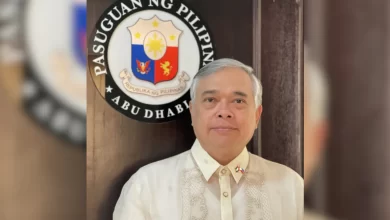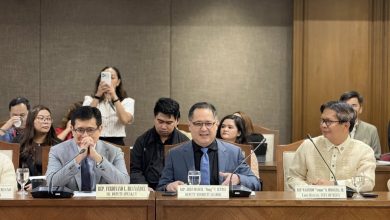In an effort to combat human trafficking in the Philippines, the Inter-Agency Council Against Trafficking (IACAT) has approved revised departure protocols for Filipinos traveling overseas, set to take effect in early September.
The updated guidelines aim to provide clarity regarding the necessary documents that departing passengers mut carry to satisfy Immigration officers on the lookout for potential trafficking victims.
The move comes after a series of complaints from travelers surfaced, where they reported missed flights due to lengthy interviews with Immigration officers, got offloaded, and asked to present a yearbook or graduation photo as an unusual requirement.
Read: T.O.T.G.O: The One That Got Offloaded
According to the revised guidelines, Immigration officers will only check four basic documents:
- Passport valid for at least 6 months from the date of departure
- Appropriate valid visa, whenever required
- Boarding pass
- Confirmed return or roundtrip ticket, whenever necessary

Tourists
For tourists, specific additional requirements might apply. For self-funded trips, the following documents are necessary:
- Confirmed return or roundtrip ticket
- Proof of hotel booking/accommodation
- Financial capacity or source of income consistent with the passenger’s declared purpose of travel
- Proof of employment and other equivalent documents
“In addition to the inspection of basic travel documents, the IO may propound relevant clarificatory questions and require the passenger to show additional supporting documents, when applicable,” the revised guideline stated.

Sponsored travels
Sponsored travels have distinct requirements based on the degree of relationship. For instance, if a travel is sponsored by a first-degree relative (spouse, children, or parents) abroad, the following documents are needed:
- Original birth certificate or marriage certificate issued by the Philippine Statistics Authority (PSA)
- Confirmed return or roundtrip ticket
- Documents of the sponsor such as a valid passport, work visa and Overseas Employment Certificate (OEC)
However, if the sponsor is a relative within the fourth degree of consanguinity or affinity, or a non-relative or a legal entity, the following are required:
- Notarized original affidavit of support and guarantee
- Confirmed return or roundtrip ticket
- Original birth certificate or marriage certificate issued by the Philippine Statistics Authority (PSA) showing exact relationship between the passenger and the sponsor
If the sponsor abroad is a non-relative or a legal/juridical entity, the following documents are required:
- Notarized original affidavit of support and guarantee
- Substantial proof of relationship
- Confirmed return or roundtrip ticket
- If a legal/juridical entity, registration papers of the sponsor
If traveling with a local sponsor, you have to present the following:
- Notarized original affidavit of support and guarantee
- Substantial proof of relationship
- Copy of sponsor’s return ticket consistent with that of the passenger

Overseas Filipino Workers (OFWs)
Overseas Filipino Workers (OFWs) will need to present their OECs and work visas, regardless of their OFW category (first-time, Balik-Manggagawa/returning, or direct-hire). Certain cases may require a special travel exit clearance instead of an OEC, such as locally employed seafarers on Philippine-registered ships in foreign ports.
Meanwhile, for OFWs traveling to other countries during their vacation, they will be treated like tourists.
However, OFWs with questionable documents or expired OECs will be referred to the Deparment of Migrant Workers-Migrant Workers Airport Assistance Center (DMW-MWAAC).

Minors
For minors traveling with parents, an original PSA-issued birth certificate is required. In cases where the mother is absent, a PSA-issued marriage certificate is also necessary. Minors traveling without parents or under other circumstances need a travel clearance certificate issued by the Department of Social Welfare and Development (DSWD) or a DSWD certificate of exemption.
However, according to the guidelines, children below 13 years old are strictly prohibited from traveling alone.
Moreover, different documents are required for traveling minors who are the subject of adoption, depending on the stage of the proceedings.


Other categories
Additional requirements apply to various other types of travelers. For instance, Filipino spouses or fiancé(e)s of foreign nationals and certain visa holders need clearance from the Commission on Filipinos Overseas.
Volunteers, pilgrims, and other specific categories require endorsements from relevant organizations.


Inspection
Inspection procedures involve primary and secondary checks. During primary inspection, an immigration officer evaluates the travel purpose and basic documents. Clarifying questions and requests for supporting documents may arise.
The primary IO may delay a passenger’s departure for presenting fraudulent, falsified, or tampered documents or for refusing primary inspection.
The IO will refer the following passengers for secondary inspection:
- Those who failed to establish their purpose of travel during primary inspection
- Those with inconsistent or insufficient travel or supporting documents
- Those unable to show proof of financial capacity to travel and are accompanied by a foreign national who is not a relative by consanguinity or affinity up to the fourth civil degree
- Those traveling, with or without a visa, to countries under Alert Level 3 or 4 and those with relevant deployment bans
- Those who previously stayed abroad for over six months as a tourist or previously misrepresented any travel information, and are intending to travel again for the same purpose
- Those with active deferred-departure records
- Those identified and reported by the IACAT Anti-Trafficking Task Force or other government agencies as a potentially trafficked or illegally recruited person or a suspected trafficker or illegal recruiter
“During the inspection, the secondary IO shall consider the totality of the circumstances of the passenger which includes, but is not limited to, the purpose of travel, country/ies of destination, duration of stay, travel history, age, financial capacity or source of income consistent with the passenger’s declared purpose of travel, and educational background. Thereafter, the secondary IO shall either allow or defer the departure of the passenger,” the revised guidelines read.
The secondary IO will defer the departure of the passenger upon a finding of any of the following grounds:
- Refusal to undergo secondary inspection
- Doubtful purpose of travel
- Inconsistent or insufficient travel or supporting documents
- Misrepresentation or withholding of material information about the travel
- Presentation of fraudulent, falsified, or tampered travel or supporting documents
- Non-compliance with previous deferred-departure requirements
- Passenger is a potentially trafficked or illegally recruited person, or a suspected trafficker or illegal recruiter


In a statement, IACAT said: “The evolving profile of human trafficking victims is increasingly characterized by individuals assuming the guise of tourists, ostensibly possessing the means to embark on international travel. In truth, however, these individuals harbor aspirations of overseas employment,”
“It is of paramount importance to emphasize that the Revised Guidelines have been formulated not to encroach upon the fundamental right to travel but to serve as a protective bulwark shielding our fellow citizens from the dire perils of human trafficking. IACAT ardently anticipates that the enforcement of these meticulously refined Guidelines, complemented by an enhanced regime of information dissemination, will effectuate a palpable reduction, if not outright elimination, of human trafficking incidents,” it added.
Read the full revised guidelines here: 2023 Revised IACAT Guidelines on Departure Formalities for International-Bound Filipino Passengers
Related: PH implements stricter departure rules to combat human trafficking




